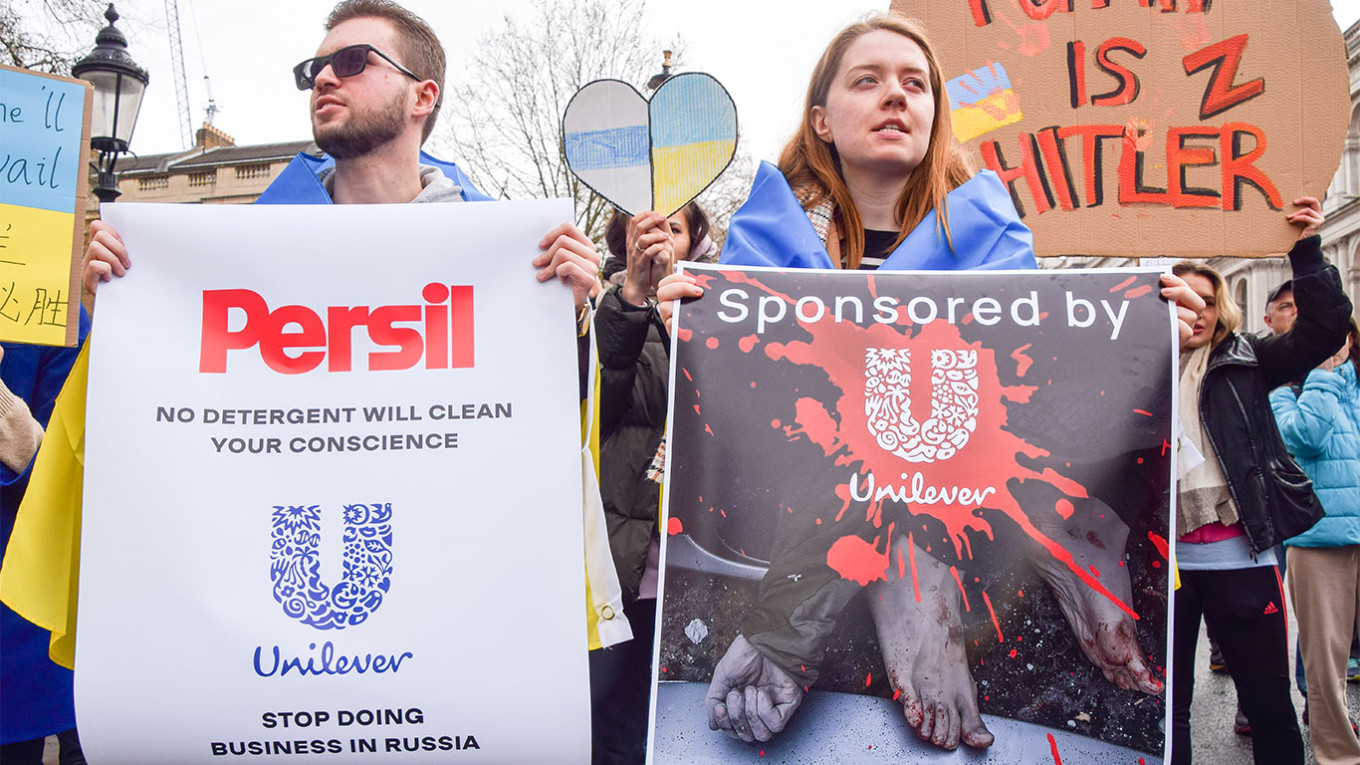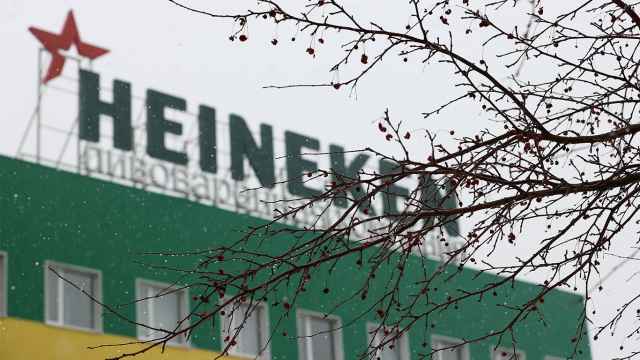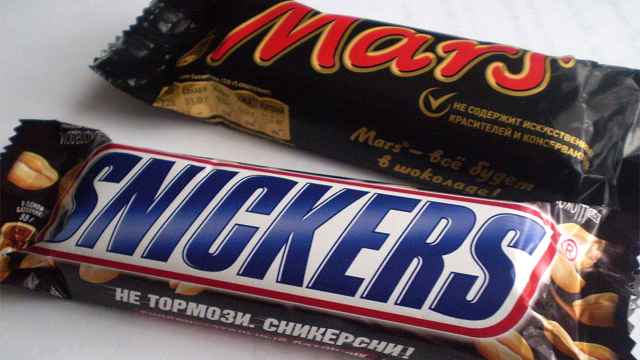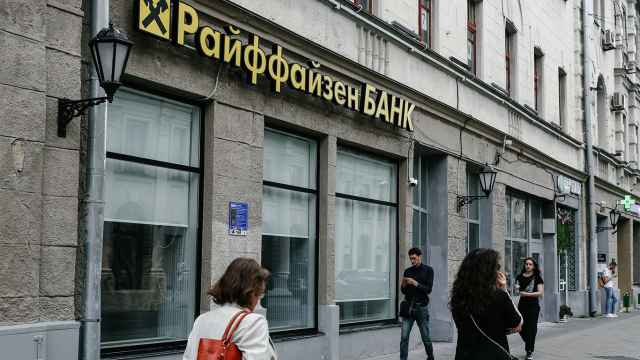British consumer goods giant Unilever has doubled profits and increased ad spending in Russia despite its pledge to stop profiting from the market after Moscow invaded Ukraine last year, investigative media reported Friday.
Unilever became the first major European food company to stop imports and exports from Russia, as well as media and ad spending there, in March 2022. It continued, however, to supply “essential” food and hygiene products to Russians while pledging not to take any profits from those sales.
Its Russian subsidiary Unilever Rus, which employs more than 3,000 people, almost doubled its 2022 net profit from 4.8 billion rubles ($62 million) to 9.2 billion rubles ($119 million), according to the investigative news outlet Follow the Money.
Unilever Rus also reportedly spent 10% more on advertising costs than in 2021, at 21.7 billion rubles ($281 million).
Unilever has attributed its increase in profit to the changing value of the ruble and inflation, according to Follow the Money. The company did not address the increase in advertising spending.
Unilever is among 175 companies that continue “substantive” business in Russia while holding off new investments, according to a comprehensive list compiled by the Yale School of Management.
More than 1,000 international businesses have stopped or halted activities in Russia in the months since the invasion that killed or injured more than 23,000 Ukrainian civilians, according to the UN.
Unilever CEO Alan Jope said in February 2023 that leaving Russia “would definitely result in more contribution to the Russian economy.”
Russia has expropriated 20 billion rubles ($250 million) in “voluntary contributions” into its budget from foreign businesses that have left the country since December 2022. The country’s commission on foreign investments that month started charging foreign companies an exit fee totaling 10% of the value of the sale.
But Follow the Money took note that Unilever dropped the “essential” modifier in favor of “everyday food and hygiene products” that it continued supplying in Russia.
Extrapolating Unilever Rus’ $331 million paid in taxes to the Russian treasury in 2021, Follow the Money and the Kyiv School of Economics (KSE) research project Leave Russia projected a similar tax base for 2022.
“Kalibr missiles cost $1 million each. For us Ukrainians, an amount like this means that Russia can produce 331 missiles. So Russia can continue to kill our people and destroy our cities and infrastructure,” said Andrei Onopriienko, the head of the Leave Russia project.
A Message from The Moscow Times:
Dear readers,
We are facing unprecedented challenges. Russia's Prosecutor General's Office has designated The Moscow Times as an "undesirable" organization, criminalizing our work and putting our staff at risk of prosecution. This follows our earlier unjust labeling as a "foreign agent."
These actions are direct attempts to silence independent journalism in Russia. The authorities claim our work "discredits the decisions of the Russian leadership." We see things differently: we strive to provide accurate, unbiased reporting on Russia.
We, the journalists of The Moscow Times, refuse to be silenced. But to continue our work, we need your help.
Your support, no matter how small, makes a world of difference. If you can, please support us monthly starting from just $2. It's quick to set up, and every contribution makes a significant impact.
By supporting The Moscow Times, you're defending open, independent journalism in the face of repression. Thank you for standing with us.
Remind me later.






